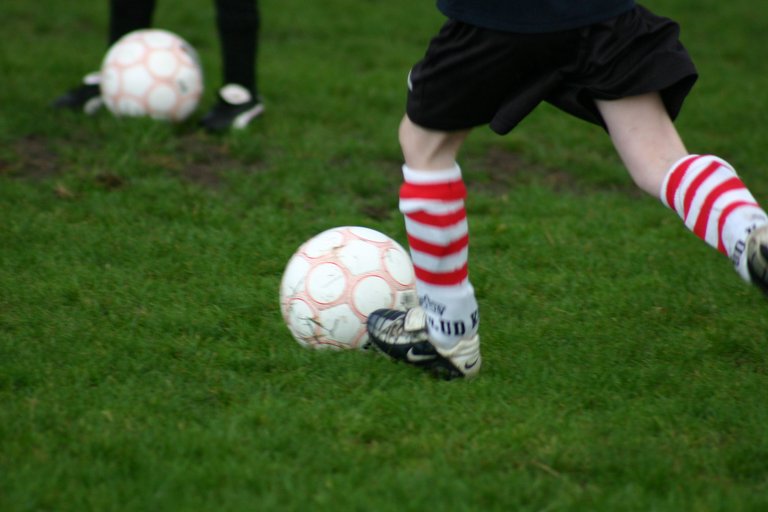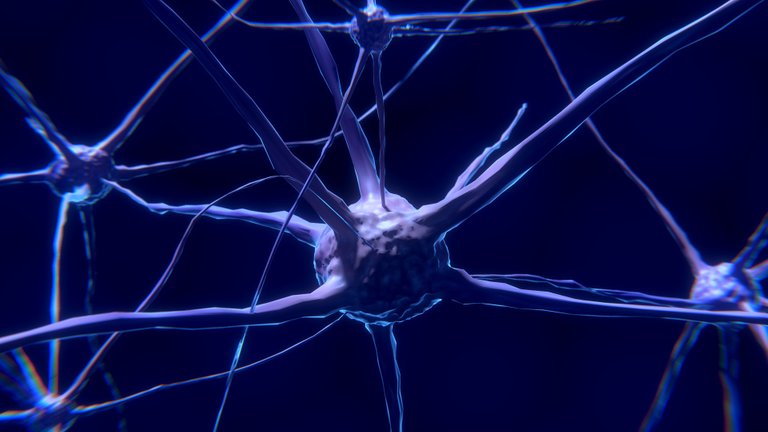Deutsch
(English version below)
Ich möchte gerne mit meinen Posts etwas an die Hive Community zurückgeben. Beneficiary für diesen Post sind @jedigeiss und der @dach-support.
In meinem letzten Post zum Thema Gewohnheiten habe ich aufgezeigt, warum Gewohnheiten einen mächtigen Einfluss auf unseren Alltag haben.
In diesem Post möchte ich mich der Frage zuwenden, wie wir von unserer Umwelt dahingehend beeinflusst werden, bestimmte Verhaltensmuster und Gewohnheiten aufzubauen und andere zu unterlassen.
Vom Moment unserer Geburt an sind wir dem Einfluss anderer Menschen ausgesetzt. Den wohl stärksten Einfluss üben vermutlich unsere Eltern auf uns aus.
Dies erscheint auch selbstverständlich, den sie sind nicht nur Erzeuger, sondern auch Erzieher und auch die Menschen, die den ersten und (meist) am längsten währenden Kontakt zu uns aufbauen.
So wird der Sport, den wir jahrzehntelang treiben oder das Musikinstrument, welches gelernt wird oftmals auf der ursprünglichen Entscheidung der Eltern beruhen - und damit nicht auf einer eigenen.
Natürlich fragen viele Eltern ihre Kinder, ob sie lieber dieses oder jenes möchten, aber letztlich liegt die EntscheidungMACHT doch nicht beim Kind selbst.

Auch bei der Ernährung, der politischen Richtung, der Einstellung zu Alkohol und Drogen und allen anderen Dingen wird das Kind immer viel Input von seinen Eltern erhalten.
Das heißt zwar nicht, dass man zwangsläufig die Einstellung der Eltern übernimmt - tatsächlich ist ebenso oft das genaue Gegenteil der Fall - aber der Input übt einen Einfluss auf die Willensbildung aus.
Mit der Zeit kommen viele weitere Personen und Institutionen hinzu, deren Einfluss der Mensch ausgesetzt ist.
Freunde, Lehrer, Staat und Unternehmen üben auf unterschiedlichste Weise (bewusst oder unbewusst) ihren Einfluss auf die Bildung von Gewohnheiten auf den Einzelnen aus.
Nun lässt sich grob unterscheiden zwischen Akteuren, welche nur das Beste für einen in Sinn haben - sozusagen das gleiche Interesse an der Bildung guter Gewohnheiten für einen haben wie man selbst - und solchen, die eigene Interessen verfolgen.
Diese Akteure verfolgen meist den Zweck, sich selbst zu bereichern oder ihre Agenda voranzutreiben. Die Bildung neuer Gewohnheiten bei einer anderen Person dient nur diesem Zweck. Die Gewohnheit kann den Eigeninteressen völlig zuwider laufen.

Wir alle wissen, dass Werbung für Konsumgüter funktioniert. Sonst würden Unternehmen, die nur dann weiterleben können, wenn sie Gewinn erzielen, nicht so große Budgets für Werbung bereitstellen und wir würden die bekannten Produkte nicht so häufig kaufen. Das mag zunächst harmlos erscheinen, denn es spricht ja nichts dagegen, über das neueste Modell von BMW oder Mercedes bescheid zu wissen.
Es wird aber dann schädlich, wenn es z.B. um Produkte geht, die unsere Gesundheit nachhaltig gefährden.
Süßigkeiten, viele Kosmetikprodukte, Social Media, Fernsehen, Alkohol und Zigaretten sind allesamt nicht förderlich für unsere körperliche und geistige Gesundheit, trotzdem kaufen und benutzen wir sie tagtäglich.
Das ist auch nicht verwunderlich, denn neben den Vorteilen de Konsums dieser Güter werden wir quasi seit der Geburt jeden Tag mit positiven Botschaften im Bezug auf diese Güter beschallt.
Jeden Tag sehen wir auf Plakaten oder auf Bildschirmen glückliche Menschen gemeinsam lachend mit Bier in der Hand, mit Essen im Mund oder sonst in irgendeiner Form der absoluten Zufriedenheit in Verbindung mit dem jeweiligen Produkt.
Obwohl viele Menschen behaupten, sie fänden diese oder jene Werbung schlecht und damit auch das Produkt unsympathisch, so hat die Werbung doch ihren Zweck erfüllt. Das Unterbewusstsein hat die Infos aufgenommen und die Assoziationen verstanden.
Das Unterbewusstsein macht 90-95% unseres Alltagsbewusstseins aus, nur 5-10% nimmt unser bewusster Verstand auf.
Es verknüpft lächelnde Menschen, frohe Farben und eine aufgeregte Stimmlage mit den entsprechenden Konsumgütern, und beim nächsten Supermarktbesuch wird dieses eher auffallen.

Teilweise geht man allerdings noch weiter. So ist es bei Shampoos eine beliebte Methode, dem Werbungsempfänger zunächst zu suggerieren, Haare in diesem oder jenem Zustand seien besonders widerwärtig, nur um mit dem beworbenen Shampoo die Lösung anzubieten. Damit wird ein Feedback Loop installiert. Der Kunde denkt sich irgendwann: "Ja ich habe auch sprödes/fettiges/schwaches Haar. Ich möchte das aber nicht. Ich möchte schön sein. Vielleicht hilft mir das hier weiter."
Ohne das angepriesene Produkt beginnt man, sich unrein, hässlich oder minderwertig zu fühlen.
Social Media und Fernsehen wiederum bringen uns dazu, viele Stunden am Tag in ungesunden Körperhaltungen zu versinken, trainieren unsere Aufmerksamkeitsspanne so, dass sie nur noch wenige Minuten oder gar Sekunden hält, verschlechtern dabei unsere Sehkraft und behindert einen gesunden Schlafrhytmus.

Von Alkohol und Zigaretten brauche ich wohl kaum anzufangen, die gesundheitlichen Risiken, die über kurz oder lang bis zum Tod führen, dürften hinlängst bekannt sein.
Besonders interessant ist hierbei das in vielen Ländern geltende Werbeverbot bzw. Einschränkung für Zigaretten. Obwohl wir im Alltag keine glücklichen Menschen mit Zigaretten in der Werbung sehen, wird die Botschaft, eine Zigarette sei etwas kostbares, auf vielfältige Weise täglich verbreitet.
Schauen wir uns beispielsweise eine klassische Filmszene an, in welcher jemand gleich hingerichtet wird.
So wird ihm oftmals die Frage gestellt "Hast du noch einen letzten Wunsch?" Die Antwort ist hier fast immer die gleiche: "Ich will nichts außer einer letzten Zigarette."
Dem Unterbewusstsein wird so immer wieder beigebracht, dass diese Zigarette etwas sehr wertvolles sein muss.
Falls dann jemand irgendwann mit dem Rauchen anfängt, setzt sich die Sucht hier in ein gemachtes Nest.
Ich möchte an dieser Stelle auch noch betonen, dass es sich hierbei nicht nur um geistige Trainingseinheiten handelt. Das Gehirn verändert sich hier auch physisch. Mit jeder Wiederholung werden neue Neuronen verknüpft und die Verbindung gestärkt. Das Gehirn ist und bleibt bis zu seinem Lebensende plastisch, das heißt Hirnareale können sich verändern, Neuronen immer wieder neu verknüpft werden. Verknüpfungen, die nicht regelmäßig trainiert werden, werden mit der Zeit durch andere ersetzt. Der Merksatz "Neurons that fire together, wire together" beschreibt das ganze sehr prägnant.

Es gibt aber noch viel mehr Gewohnheiten, die mächtigen Einflüssen ausgesetzt sind. Wie die finanziellen Gewohnheiten der meisten Menschen in eine negative Richtung gedrückt werden, werde ich noch separat in einem eigenen Post behandeln.
Wir sehen also, dass die Einflüsse auf unsere alltäglichen Gewohnheiten und damit auf unser alltägliches Leben mannigfaltig sind, und ich habe nur einen Teil davon angerissen.
Oft sind sie nicht zu unserem Vorteil, sondern dienen primär der Bereicherung eines anderen. Unbewusst antrainiert, fällt uns meist nicht einmal auf, dass einer Entscheidung ein langer Prozess vorausging, diese in eine bestimmte Richtung zu lenken.
Es wäre daher von Vorteil, sich zunächst dieser Einflüsse bewusst zu werden, sich dann bewusst für eine neue Gewohnheit zu entscheiden und diese dann effektiv zu etablieren.
In meinem nächsten Post werde ich mich dann endlich der Frage widmen, WIE man möglichst effektiv seine Gewohnheiten ändert.
English .
I would like to give something back to the Hive community with my posts. Beneficiary for this post are @jedigeiss and the @dach-support.
In my last post on habits, I pointed out why habits have a powerful impact on our daily lives.
In this post, I want to address how we are influenced by our environment to build certain behaviors and habits and refrain from others.
From the moment we are born, we are exposed to the influence of other people. Probably the strongest influence is exerted on us by our parents.
This seems to be self-evident, because they are not only our makers, but also educators and also the people who establish the first and (usually) longest lasting relationship with us.
Thus, the sport we play for decades or the musical instrument that is learned will often be based on the parents' original decision - and not one of our own.
Of course, many parents ask their children if they would prefer this or that, but ultimately the decision does not lie with the child itself.

Also, when it comes to diet, political direction, attitudes toward alcohol and drugs, and all other things, the child will always get a lot of input from his or her parents.
This does not mean that one necessarily adopts the attitude of one's parents - in fact, just as often the exact opposite is true - but the input does exert an influence on the formation of one's will.
Over time, there are many other people and institutions whose influence a person is exposed to.
Friends, teachers, the state, and companies all exert their influence on the formation of habits on the individual in a wide variety of ways (consciously or unconsciously).
Now, a rough distinction can be made between actors who have only the best in mind for one - have the same interest in the formation of good habits for one as oneself, so to speak - and those who pursue their own interests.
These actors usually pursue the purpose of enriching themselves or advancing their agenda. Forming new habits in another person serves only this purpose. The habit may be completely contrary to self-interest.

We all know that advertising consumer goods works. Otherwise, companies that can only continue to exist if they make a profit would not allocate such large budgets to advertising, and we would not buy the well-known products so often. This may seem harmless at first, because there's nothing wrong with knowing about the latest model of BMW or Mercedes.
But it becomes harmful when it comes to products that pose a lasting threat to our health, for example.
Sweets, many cosmetic products, social media, television, alcohol and cigarettes are all not beneficial to our physical and mental health, yet we buy and use them every day.
This is not surprising, because in addition to the benefits of consuming these goods, we have been bombarded with positive messages about them virtually every day since birth.
Every day we see on posters or on screens happy people laughing together with beer in their hands, food in their mouths or otherwise in some form of absolute satisfaction in connection with the respective product.
Although many people claim they find this or that advertisement bad and thus the product unappealing, the advertisement has served its purpose. The subconscious mind has absorbed the info and understood the associations.
The subconscious makes up 90-95% of our everyday consciousness, only 5-10% is taken in by our conscious mind.
It associates smiling people, happy colors and an excited tone of voice with the corresponding consumer goods, and the next time you visit the supermarket, this is more likely to be noticed.

In some cases, however, methods go even further. In the case of shampoos, for example, it is a popular method to first suggest to the advertising recipient that hair in this or that condition is particularly disgusting, only to offer the solution with the advertised shampoo. This installs a feedback loop. At some point, the customer thinks to himself: "Yes, I also have brittle/greasy/weak hair. But I don't want that. I want to be beautiful. Maybe this will help me."
Without the advertised product, you start to feel unclean, ugly or inferior.
Social media and television, in turn, cause us to sink into unhealthy postures for many hours a day, train our attention span to last only a few minutes or even seconds, deteriorate our vision in the process, and hinder a healthy sleep rhythm.

I don't think I need to start with alcohol and cigarettes. The health risks, which lead to death sooner or later, should be well known.
Of particular interest here is the advertising ban or restriction for cigarettes that is in place in many countries. Although we do not see happy people with cigarettes in advertising in everyday life, the message that a cigarette is something precious is spread in many ways every day.
For example, let's look at a classic movie scene in which someone is about to be executed.
So he is often asked the question: "Do you have one last wish?" The answer here is almost always the same: "I want nothing except one last cigarette."
The subconscious is thus taught over and over again that this cigarette must be something very valuable.
If someone then starts smoking at some point, the addiction settles into a premade nest here.
I would also like to emphasize at this point that this is not just mental training. The brain is also changing physically here. With each repetition, new neurons are linked and the connection is strengthened. The brain is and remains plastic until the end of its life, which means that brain areas can change and neurons can be linked again and again. Connections that are not regularly trained are replaced by others over time. The phrase "neurons that fire together, wire together" describes the whole thing very succinctly.

But there are many more habits that are subject to powerful influences. I will cover how most people's financial habits are pushed in a negative direction separately in a separate post.
So we see that the influences on our everyday habits, and thus on our everyday lives, are manifold, and I've only touched on a portion of them.
Often they are not for our benefit, but serve primarily to enrich someone else. Unconsciously trained, we usually do not even notice that a decision was preceded by a long process to steer it in a certain direction.
It would therefore be beneficial to first become aware of these influences, then consciously decide on a new habit and then effectively establish it.
In my next post, I will finally address the question of HOW to change habits as effectively as possible.
Langer aufwändiger Artikel, leider kann ich ihn gerade nicht lesen, aber noch etwas extra, mag ich dir schicken. !LUV !PGM und !invest_vote
BUY AND STAKE THE PGM TO SEND A LOT OF TOKENS!
The tokens that the command sends are: 0.1 PGM-0.1 LVL-0.1 THGAMING-0.05 DEC-15 SBT-1 STARBITS-[0.00000001 BTC (SWAP.BTC) only if you have 2500 PGM in stake or more ]
5000 PGM IN STAKE = 2x rewards!
Discord
Support the curation account @ pgm-curator with a delegation 10 HP - 50 HP - 100 HP - 500 HP - 1000 HP
Get potential votes from @ pgm-curator by paying in PGM, here is a guide
I'm a bot, if you want a hand ask @ zottone444
(4/5) gave you LUV. tools | wallet | discord | community | <>< daily
tools | wallet | discord | community | <>< daily
HiveBuzz.me NFT for Peace
Sehr interessanter Beitrag, ja extrem viel geschieht unbewusst. Umso wichtiger ist eine gewisse "psychische Hygiene". Ich bin gespannt auf den nächsten Artikel.
Als Eltern ist man immer etwas im Zwiespalt zwischen der Vermittlung von Werten und dem gewähren von Freiraum für die Entwicklung des Kindes. Ein erster und wichtiger Schritt ist Bewusstsein für diesen Umstand.
Guter Artikel. Auch wenn ich schon sehr viel verändert habe die Jahre über und mich fast nirgends mehr in deinem geschriebenen wiederfinde, bin ich gespannt, was du im nächsten Post schreibst.
!ALIVE
You Are Alive so I just staked 0.1 $ALIVE(4/10)@octavian1! to your account on behalf of @mario89.
The tip has been paid for by the We Are Alive Tribe
 through the earnings on @alive.chat, feel free to swing by our daily chat any time you want.
through the earnings on @alive.chat, feel free to swing by our daily chat any time you want.
@kvinna denkt du hast ein Vote durch @investinthefutur verdient!@kvinna thinks you have earned a vote of @investinthefutur !
Congratulations @octavian1! You have completed the following achievement on the Hive blockchain and have been rewarded with new badge(s):
<table><tr><td><img src="https://images.hive.blog/60x70/http://hivebuzz.me/@octavian1/replies.png?202209282352" /><td>You got more than 200 replies.<br />Your next target is to reach 300 replies. <p dir="auto"><sub><em>You can view your badges on <a href="https://hivebuzz.me/@octavian1" target="_blank" rel="noreferrer noopener" title="This link will take you away from hive.blog" class="external_link">your board and compare yourself to others in the <a href="https://hivebuzz.me/ranking" target="_blank" rel="noreferrer noopener" title="This link will take you away from hive.blog" class="external_link">Ranking<br /> <sub><em>If you no longer want to receive notifications, reply to this comment with the word <code>STOP <p dir="auto"><strong><span>Check out the last post from <a href="/@hivebuzz">@hivebuzz: <table><tr><td><a href="/hive-122221/@hivebuzz/pud-202210"><img src="https://images.hive.blog/64x128/https://i.imgur.com/805FIIt.jpg" /><td><a href="/hive-122221/@hivebuzz/pud-202210">Hive Power Up Day - October 1st 2022<tr><td><a href="/hive-106258/@hivebuzz/hivefest-2022-bos-result"><img src="https://images.hive.blog/64x128/https://i.imgur.com/sCBFjhf.png" /><td><a href="/hive-106258/@hivebuzz/hivefest-2022-bos-result">Balls of Steel - HiveFest⁷ Petanque Tournament Results <h6>Support the HiveBuzz project. <a href="https://hivesigner.com/sign/update_proposal_votes?proposal_ids=%5B%22199%22%5D&approve=true" target="_blank" rel="noreferrer noopener" title="This link will take you away from hive.blog" class="external_link">Vote for <a href="https://peakd.com/me/proposals/199" target="_blank" rel="noreferrer noopener" title="This link will take you away from hive.blog" class="external_link">our proposal!Yay! 🤗
Your content has been boosted with Ecency Points
Use Ecency daily to boost your growth on platform!
Support Ecency
Vote for new Proposal
Delegate HP and earn more, by @captainloken.